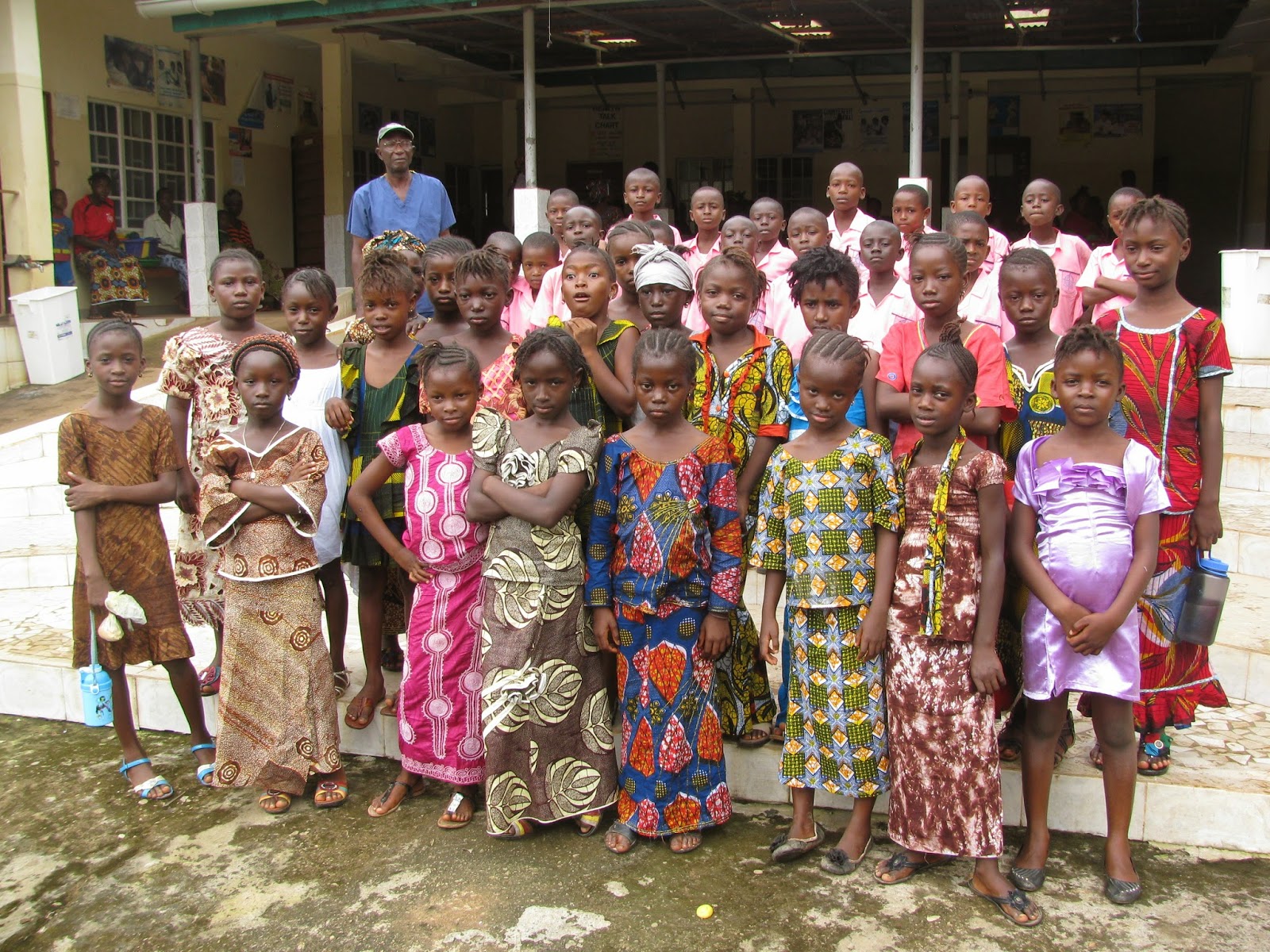Teaching Culture
 I spent much of my time in Kabala teaching. When I began teaching in the U.S, that is when I began to feel the brunt of culture shock. When I first walked into the classroom in Kabala, Sierra Leone, that was when I realized that the students always write in pen. I had assumed they used pencils, because I grew up using pencils in school.
I spent much of my time in Kabala teaching. When I began teaching in the U.S, that is when I began to feel the brunt of culture shock. When I first walked into the classroom in Kabala, Sierra Leone, that was when I realized that the students always write in pen. I had assumed they used pencils, because I grew up using pencils in school. You would be surprised how many challenges came up with the use of pens: my students sticking broomsticks into the ink because it was blocked, ink exploding all over their face as they try to blow into the pen, students "stealing" other students pens. When my students would come in from break time, after eating fried fish, their oily hands often prevented the pen to write on their paper. Every day, not having a working pen was the popular excuse to not write in the classroom.
My first day of substitute teaching was with a lively group of kindergarteners, all telling me they needed to sharpen their pencil. It's a simple no. Stop writing so hard. Your pencil does not need to be in a perfect point. It will still work. I did not realize that pencils would cause so many problems in the classroom here in the U.S. I thought pens were a challenge, but was surprised by the challenges that came with pencils. Something so simple as a pen or pencil can become extremely complicated in the classroom.
Another challenge that hit me when I first began teaching, was the lack of student motivation to learn. This was something that I took for granted in Sierra Leone.
My students were extremely eager to learn despite the challenges. Even though they were only in 2nd grade, they understood the benefits of getting a good education. They had the drive and the desire to learn because education is not free and a good education is something hard to attain in Sierra Leone.
Here, because education is free, it is extremely easy to take it for granted. The students in Grand Rapids Public Schools get free breakfast, free lunch, and they go to school for free. They have many resources, good literature, trained teachers, and classroom aid so that these students can thrive in school. But why do many of them not want to be in school?
How do we live our lives like students in Sierra Leone, instead of students in the U.S? How do we live our lives in a way that we do not take these simple things we are given for granted? As education in Sierra Leone becomes more and more accessible, how will this impact the students attitudes towards learning?
 I don't really have the answer to these question, but I think one way in which we can live this out is by learning about other cultures and the education system in other countries. I have had the opportunity to share with my students here about life in Sierra Leone, particularly about what it is like to go to school there. It sparked interest and a lot of questions from my students. They were curious. My hope is that this opened their eyes to what they do have, to how education is done differently here, and to how they can be thankful for what they do have.
I don't really have the answer to these question, but I think one way in which we can live this out is by learning about other cultures and the education system in other countries. I have had the opportunity to share with my students here about life in Sierra Leone, particularly about what it is like to go to school there. It sparked interest and a lot of questions from my students. They were curious. My hope is that this opened their eyes to what they do have, to how education is done differently here, and to how they can be thankful for what they do have. As we get opportunities to travel, to learn about other cultures, to make new friendships, we realize that we have been blessed. I am thankful for my own experiences of traveling and making international friendships, which have shaped me and guided me in many ways through my short life.



Comments
Post a Comment